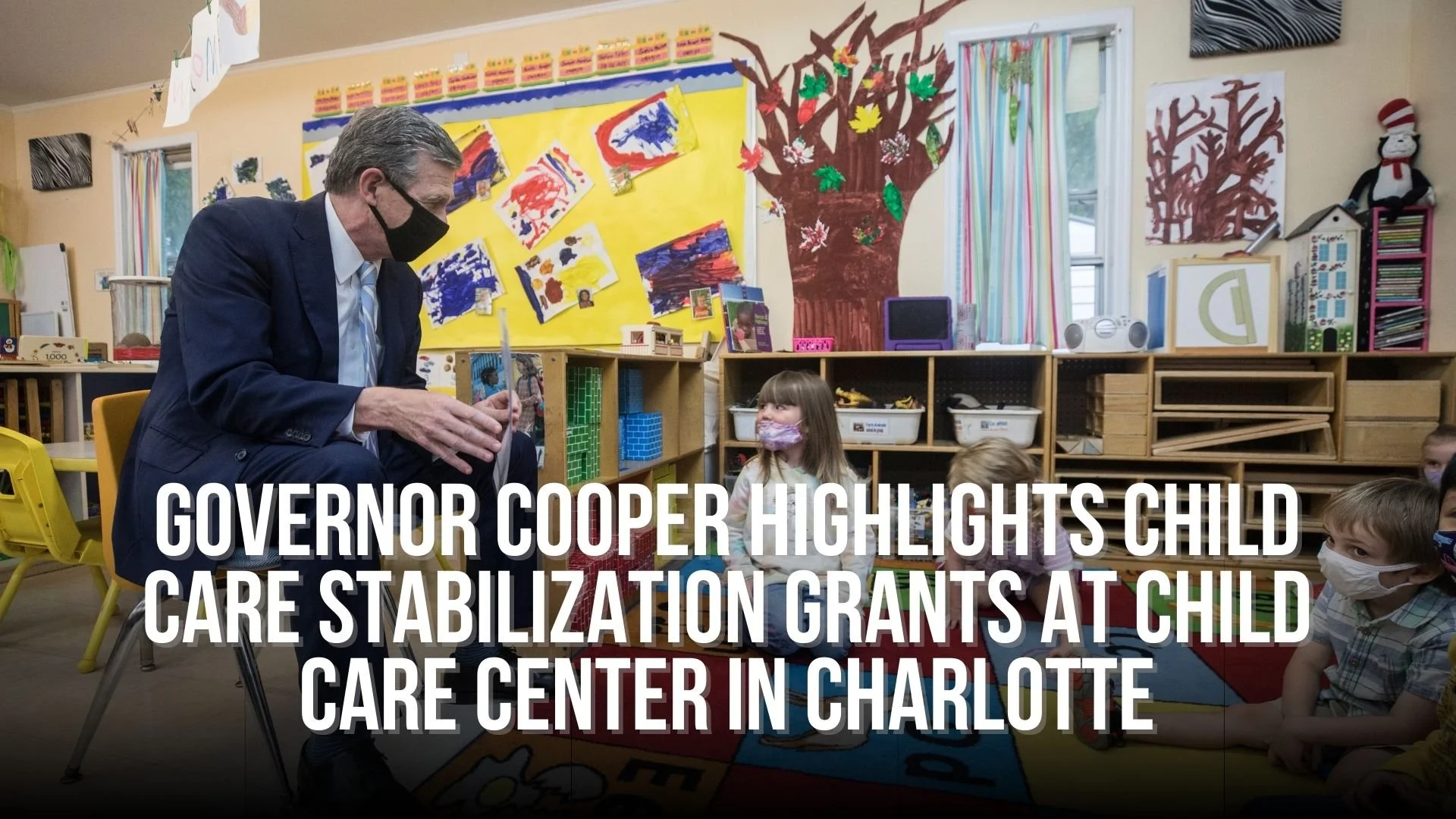Governor Cooper Highlights Child Care Stabilization Grants at Child Care Center in Charlotte
RALEIGH: Today, Governor Roy Cooper and North Carolina Department of Health and Human Services Secretary Mandy K. Cohen, M.D. visited and toured LeafSpring School in Charlotte to meet educators and students following the recent announcement of a historic $805 million investment in North Carolina’s early care and learning care programs.
“High-quality child care and pre-kindergarten are critical building blocks for children’s success in school and for parents who work,” Governor Cooper said. “When we invest in early childhood education, we are investing in the workforce of today and tomorrow.”
“Childcare providers like LeafSpring Schools of Charlotte are working hard to help parents work and raise strong, capable children—and that helps raise North Carolina,” said Secretary Cohen. “These grants will help early care and learning programs recover from the COVID-19 pandemic, stay in business, and continue to serve our families, children, and lift up our state’s economy.”
The LeafSpring School offers nursery school, preschool, transitional kindergarten, and summer camp for children in the Charlotte community. The school focuses on providing quality early education and school-age recreation programs focused on children’s growth and development.
“LeafSpring School is a five-star and nationally accredited program. Our teaching and nursing staff serve over 400 families in Mecklenburg County and surrounding areas,” said Rhonda Rivers, Regional Director of Curriculum and Training at LeafSpring School. “The funds from the stabilization grants will allow us to provide ongoing bonuses for our staff in the effort to recruit and retain high-quality teachers to continue our efforts to provide a safe, nurturing community for kids and families.”
The visit follows the Governor’s announcement last week of the new NC Child Care Stabilization Grants made possible by funding from the 2021 American Rescue Plan Act. Grants funded by this significant $805 million investment can be used for a range of activities including personnel costs; mental health supports; payments for rent, mortgage, utilities, facility maintenance, or insurance; personal protective equipment (PPE); equipment and supplies; and goods or services necessary to maintain or resume child care.
All private, licensed early care and learning programs are eligible to apply for Child Care Stabilization Grants, including for-profit and not-for-profit programs, family child care homes, and faith-based centers.
Since March 2020, more than $300 million in emergency funding has been directed toward the early care and learning system to help families, teachers, and programs stay resilient during the COVID-19 crisis. These grants will continue North Carolina’s efforts to support working families by providing them with access to high-quality, affordable child care.
The NC Economic Development Strategic Plan identifies access to high-quality early care and learning as a key strategy for building North Carolina’s economy. Employers benefit when working parents know their children are receiving quality care in a healthy environment. They are more likely to stay in the workforce and are more productive and focused at work. These funds will ensure that classrooms remain open to children, supporting parents as they pursue the educational and career goals that could lead them to better opportunities.
The Child Care Stabilization Grants application opened on October 11, 2021 and closes on October 31, 2021. To access the application and learn more about the program, visit https://ncchildcare.ncdhhs.gov/Home/Stabilization-Grants.



